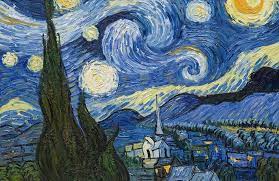It’s a timeless classic for a reason.
“Oh, continue to love me-never misjudge the most faithful heart of your beloved. Ever thine. Ever mine. Ever ours.”
Beethoven wrote these words to his Immortal Beloved — and who hasn’t read those words and wanted them for their own?
I know I have. I’ve pored over famous love letters after watching that scene in the Sex and the City movie with Big and Carrie reading the words I’ve just quoted. It was a non-existent book, but I’m sure it now exists in multiple forms by multiple authors. From there, finding other famous love letters made public wasn’t difficult.

When I first became aware of letters like that, I wasn’t in a relationship where love letters were exchanged. Romance was not a part of my life, and I was given to expect that romance was a bonus to anyone’s life — not a necessity. (I refer you to any previous essay about The Narc).
That romance should be extraneous rather than essential strikes me as sad, but I accepted it, folded away my romantic nature, tied it up with string, and put it away for safekeeping. I hid it where The Narc could not find it and take it. It wouldn’t be indulged then, but it couldn’t be taken from me either.
Even then, I was hopelessly in love with someone from my past and hoped that one day I would present her with the essence of my writing.
When the relationship with The Narc mercilessly ended, I sunk to the canvas, and as I was down, she stood over me, taunting and demanding her stunned opponent get back up.
I no longer believed romance was a bonus included in the average relationship. Or maybe I just never wanted an average relationship in the first place. Perhaps with all my flaws, I was a true romantic. It’s hard to find under all the sarcasm and cynicism, but I now cry during romantic comedies. When I hear a romantic song, I cry. I cry when I think about my two sons. I cry more than I ever have in my previous years on earth. But now I understand I was meant to send flowers, write poetry, and take walks under a starry sky and the rising sunrise on the beach. Whether I had those things alone or shared them with a partner, I would have them — and they were anything but extraneous.

Love letters are a timeless classic for a reason. Do you think one day, the woman of your dreams will hold up a record of your text messages with that same feeling of longing? Or print out an email to sigh over, no matter how beautiful it might be?
Ah, millennials.
There’s beautiful alchemy in words scrawled across a page in ink, written by our hand. I have been listening to Howard Stern praising the old-world charm of a fountain pen, which he concluded is the best instrument after a comprehensive test of different writing instruments. “It’s just personal. Anyone can send a note by e-mail. A note received in the mail says ‘I took the time to think of you.’” He’s correct. To say “I love you” without waiting for it to be echoed back, to say it because we felt it and needed nothing more than to write it down and seal it with a lick, a press, a kiss. It doesn’t appear in an instant, words flashing onto a screen, but is carried from our hearts to theirs, hand-delivered into a box to wait to be discovered and opened.
I did some research. Before they declared their independence, the American colonists decided they needed a better way to communicate with one another. In the summer of 1775, they created the Postal Service at the Second Continental Congress and named Benjamin Franklin its first Postmaster General. Where before letters or packages had to be carried between inns and taverns or directly from house to house, now there was a way for Americans to correspond across long distances safely, discreetly, and reliably. After the Revolution, when Congress ratified the Articles of Confederation, legislators included the Post Office in the ninth of those articles. They later enshrined it in the first article of the Constitution.
The Founders saw the Postal Service as an essential vehicle for other rights, especially the freedom of the press: one of the first postal laws set a special discounted rate for newspapers. But they also understood that a national post unifies a nation, allowing its citizens to stay connected and connecting them with their federal government. To think the 45th president of the United States attempted to destroy this last bastion of personal service.
I will never fall out of love with you.
A love letter is more than just the words it contains, although those are important. It shows the effort made and time taken — when those words could easily have been typed out in a couple of minutes and sent for immediate receipt.
Love letters are grand romantic gestures often overlooked because they don’t garner attention. They are quietly written, sent, and read. They are our private communication, words shared between two and unnoticed by the world around us.
I don’t think I would purchase a book entitled “Texts of Famous Lovers,” but love letters? We can read the exchange between Anais Nin and Henry Miller, Johnny Cash and June Carter Cash, and Mark Twain (Samuel Langhorne Clemens) to future wife Olivia Langdon. History is filled with love letters — some of them famous, most of them not. Some of them are tied up with ribbon and saved. Countless more are likely discarded or later burned as we burn our former lovers in effigy.
Even a letter written after a failed relationship is still a love letter. Fury and hate may etch deeper marks on the page, but they still allow us to say the words that need to be said, to scream into the void and have the void sit down and hear us. Often, we get the last word — refusing to allow the end to define us. We write it out, seal it, and send it — and it feels like closure, given and granted by ourselves alone. No need for a reply. No need for anything except to drop it in a box and send it away from us.
The timeless nature of a love letter isn’t about whether it is saved and one day found and read again. It is about when a lover holds it in their hands — when they read the words, then pauses to reread them. It is a letter being folded and unfolded so many times that the creases become deeper, creating fragile breaking points where each additional time a letter is opened, it must be handled more and more gently to keep it from tearing apart. And no matter how thin and fragile the paper gets or how faded the ink, we never get tired of reading the words.
The words can’t survive flooding or fire, but sometimes they survive the relationship. The words outlive us, and they tell a story. They tell our story, capturing the moments as we lived them.
Not the whole story. No letter exchange will ever tell who we were whole. Words on paper cannot capture tender moments, bitter arguments, or passion igniting, simmering, burning out, or reigniting. We leave only a little of ourselves on the page, but we leave so much love.
Back to my research. Vita Sackville-West to Virginia Woolf.
Writer Virginia Woolf and English poet Vita Sackville-West exchanged a series of love letters to each other that was, unsurprisingly, beautifully written. But it was perhaps a letter from Vita, sent from Milan on January 21, 1927, offers the most straightforward, most unguarded, glimpse into their love story. Unlike Woolf’s flowery, ornate prose, West is far more straightforward: “I just miss you, in a quite simple desperate human way.” So basic. So beautiful. So, why not use it? You bet I will.
Do you want to appreciate something so underappreciated? Read it out loud.

“I am reduced to a thing that wants Virginia,” she wrote. “I composed a beautiful letter to you in the sleepless nightmare hours of the night, and it has all gone. I just miss you, in a quite simple desperate human way. You, with all your undumb letters, would never write so elementary a phrase as that; perhaps you wouldn’t even feel it. And yet I believe you’ll be sensible of a little gap. But you’d clothe it in so exquisite a phrase that it should lose a little of its reality. Whereas with me it is quite stark: I miss you even more than I could have believed, and I was prepared to miss you a good deal. So, this letter is really just a squeal of pain. It is incredible how essential to me you have become. I suppose you are accustomed to people saying these things. Damn you, spoilt creature; I shan’t make you love me anymore by giving myself away like this — But oh my dear, I can’t be clever and stand-offish with you: I love you too much for that. Too truly. You have no idea how stand-offish I can be with people I don’t love. I have brought it to a fine art. But you have broken down my defenses. And I don’t really resent it.”
Can you imagine if that was texted? Undumb would be auto-corrected to numb or undim. Undim?
Back to her. That woman I can never escape. (I hope it’s not creepy)
So, when I get my nerve to reach out to the only woman I truly ever loved, I mean TRULY EVER LOVED, we will talk, and we will talk, and I suppose if things go well, we can text. If the text is more than the flight landing in ten minutes or got reservations at Le Bernadine for 8 PM, it may lose some of its appeal. There is just something simply tangible about love letters that make every word on them count. And if you want your words to weigh as much as you feel, a handwritten love letter will do the trick. Call it old-school romantic, but there is nothing more powerful yet vulnerable at the same time as someone who spills their heart on ink and paper.
Unlike a text or an email, a love letter can be held onto and kept. And it will still give the same feeling even when it has been opened or re-read a hundred times more. They are like memories in their own way. Something that can remind you of a particular feeling or a special time and place.
They’re more than just fleeting words. They last through time and are a permanent reminder of love.
Writing love letters makes you happy, mainly when you write them. They also make you quite emotional. I just told you I now cry at the drop of a hat. (Male menopause?)
Why wouldn’t I enjoy writing a love letter to her? Engaging in any love-related activity activates essential parts of our brain, including the ones responsible for emotion, attention, motivation, and memory.
So, when you’re writing love letters to your loved ones, you’re making them happy and engaging in a healthy brain exercise for yourself as well. Writing love letters also helps reduce stress and even lowers cholesterol levels.
You want more?
Writing is so therapeutic. It allows you to gather your thoughts and demands you to think through them before you put them permanently on paper. While texting or calling is reactionary, writing is so much more deliberate. It’s a giving exercise, but it also clarifies the more essential things you want to be said.
A love letter is something you make to give. You write the words because you want to say them. You want to convey an emotion, nothing more. There is no asking or receiving. And that’s probably why it is so intimate.
Drinks and dinner and dialogue? That is great. That is building and learning, and caring.
But you don’t just give love letters to anyone. You give them to people who matter most to you, people you feel safe with, and people you adore. A love letter is an act of love; nothing is more loving than professing adoration to someone important. From thinking of words to write, ensuring that it conveys meaning, and handing them to the recipient – it’s a deliberate effort and a testament of love.
And to be honest, people don’t expect love letters these days. So not only is it an act of true love, but it can serve as a beautiful surprise to the receiver as well. Some days we do not go to the mailbox. Everything comes to our laptops or phones or tablets. All bills come to our email. Magazines. News. Packages are left in front of our door. We have our mailbox, but it no longer houses the same excitement it once did. So, when we open it with the expectation of getting ready to toss everything we pull out, a handwritten letter changes everything. We stop dead in our tracks. The curiosity is too much. We rip open the envelope and read the parchment in our hands with bewilderment.
It boils down to one thing. Love letters improve your relationship. They just do. They come from the heart.
They emphasized the reasons you love, admire, or value someone. It confirms the importance of your relationship. It’s a sign that you cherish what you have and are not afraid to say it.
“Since I left you, I have been constantly depressed. My happiness is to be near you. Incessantly, I live over in my memory your caresses, your tears, your affectionate solicitude. The charms of the incomparable Josephine kindle continually, a burning and a glowing flame in my heart. When free from all solicitude, all harassing care, shall I be able to pass all my time with you, having only to love you, and to think only of the happiness of so saying, and of proving it to you?”
That was Napoleon to Josephine. The ruthless little guy had a soft side. Who knew?
You want another?
Beethoven. Writing about Beethoven is not something I enjoy doing. I know. I know. This is my second entry on Beethoven, but this guy was too talented. The last movement in Beethoven’s Ninth Symphony is the most famous, as it served as the musical setting for Friedrich Schiller’s poem “Ode to Joy.” Beethoven was already deaf when he wrote it. He wrote masterpieces when he was deaf. And just what have I done?
I tease when I say I despise writing about Beethoven, but compared to him, I feel like such a yutz.
The identity of Beethoven’s “Immortal Beloved,” to whom the iconic composer and pianist wrote several letters in 1812, is still largely a mystery. But the letters paint a vivid picture of an epic love story. Many historians believe Beethoven’s “Beloved” was a diplomat’s daughter, Antonie Brentano, to whom the composer dedicated his “Diabelli Variations Op. 120.”
In one of his letters found after his death—which was famously quoted in the Sex and the City movie—he wrote:
“Though still in bed, my thoughts go out to you, my Immortal Beloved, Be calm-love me-today-yesterday-what tearful longings for you-you-you-my life-my all-farewell. Oh, continue to love me-never to misjudge the most faithful heart of your beloved. Ever thine. Ever mine. Ever ours.”
Old School? The Dinosaur Age?
Writing romantic love letters can feel like a prehistoric practice in an age where we classify a 2 a.m. “you up?” text as “romance.” But there was once a time in our not-so-distant past when eloquent prose professing a burning affection (and written by hand!) was the norm. And not just the stuff of sensitive, heterosexual artist types either. They fill history with achingly romantic love letters between two women and between two men, from former kings, presidents, and war generals, and between two best friends.
not just the stuff of sensitive, heterosexual artist types either. They fill history with achingly romantic love letters between two women and between two men, from former kings, presidents, and war generals, and between two best friends.
Nothing says I love you like a nice handwritten letter. Let that person see your penmanship. Let her/him know just how atrocious your calligraphy is. It won’t matter. It’s the beauty of those words on the paper. Hang on. Allow me, again, to take you sideways and provide full disclosure. I have hand-written 31 letters to her. That’s what I said. 31! None are actual love letters. They are letters, however, written in my horrific penmanship, that remind her I am thinking of her. But are they actually love letters if I never mailed them and they take up space in my desk drawer? On the plus side, I have been informed bad and messy handwriting is a sign of high intelligence, meaning my pen cannot keep up with my brain.
I hope I get the chance to write one. I need the universe to stop momentarily, take a deep breath, and look my way. Just this once.
She needs to know, as Leo Tolstoy wrote to Valeria Arsenev, “I already love in you your beauty, but I am only beginning to love in you that which is eternal and ever previous — your heart, your soul.”
Hmm. Here goes nothing…
Pam, you are my blue crayon. The one I never have enough of. The one I use to color my sky.
Oy. Okay. I have some work to do. The universe has not stopped yet. I have not reached out to her, this beauty from Jersey. But practice makes perfect. I am catastrophically in love with you.
I am so happy I bought a lot of ink.

